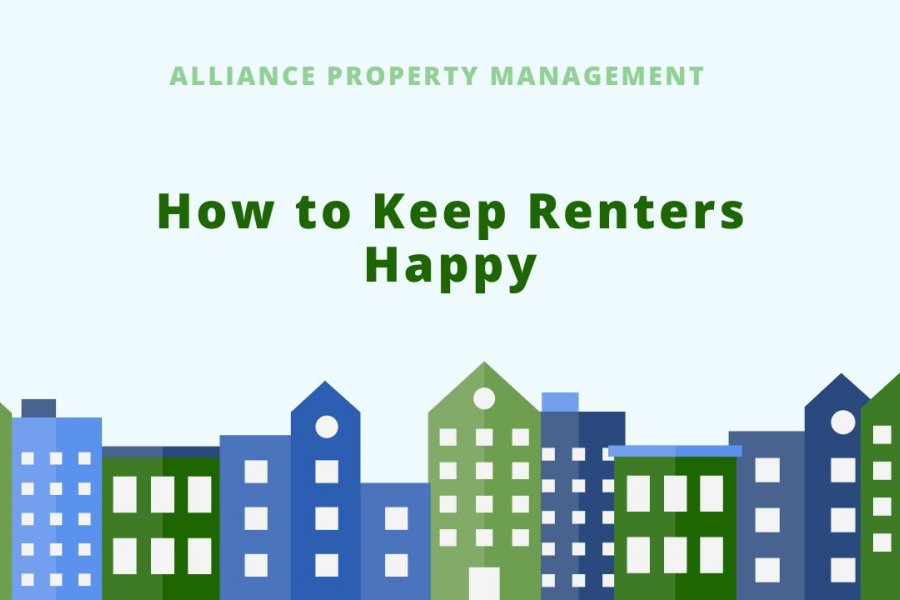
As a rental property owner, your tenants are the bread and butter of your business. Finding highly qualified tenants who pay on time, respect and care for your property, and are on good terms with other tenants and neighbors does not always come easy. That’s why if you find one, it’s important to go the extra mile to make them stay longer.
In this article, we will share some effective tips on how to keep your renters happy, so they remain on your property for the long term.
1. Create a Clear Rental Agreement
By making your rental agreement clear from the start, you will leave no room for confusion. A clear rental agreement can help you run your rental property smoothly. You should include what tenants can expect from you as a landlord.
The agreement should indicate a reasonable timeframe for responding to maintenance and repair requests, as well as how often you will perform routine inspections.
The agreement should also clearly indicate what you expect from your tenants, including how they can help maintain the upkeep of the property. Any possible penalties and fees that you will charge to them for not honoring the lease should also be clearly stated to avoid any issues later on.
.jpg)
It’s also best to discuss the stipulations on the lease personally with your tenants so you can address their questions or concerns right away before they sign the contract.
2. Provide Amenities That Your Tenants Need
Knowing what amenities tenants need can help you stay ahead of the competition. For instance, landlords who provide high-speed internet have an edge over those who don’t. There are some tenants who also prepare an open floor plan, a relaxing outdoor space, or a scenic curb appeal. Trying to find out what amenities would work best can help you attract highly qualified tenants.
3. Keep Your Communication Lines Open
One of the best things that can help you create a good relationship with your tenants is to keep your communication lines open so they can easily reach out to you whenever they can.
If you make yourself easily accessible and available to your tenants, they will know that you have a genuine concern for their well-being and that you are not only dealing with them on a per-transaction basis.
4. Perform Routine Inspection and Maintenance
One way to prevent repair concerns is to perform regular inspections and maintenance. Doing so can help convince your tenants to extend their stay on your rental property. Aside from keeping tenants happy, performing routine inspections can also help prevent certain issues from getting bigger.
.jpg)
This is an important strategy to save money on repairs because regular inspection and maintenance allow you to notice and resolve issues while they are still not too costly to handle.
5. Address Repair Requests Promptly
Most tenants will request repairs that are due to normal wear and tear. If tenants report repair issues, make sure to take the time to respond to them as soon as possible. It’s also essential to send a trained technician who can provide a resolution to the issue efficiently.
Repairs that are due to normal wear and tear should be shouldered by the landlord, so make sure to set aside a budget for regular repairs.
6. Resolve Any Other Complaints As Soon As Possible
Aside from repair concerns, some tenants may have other reasonable complaints about certain things, such as noise or concerns with neighbors. Ideally, tenant complaints should be addressed and resolved within a week. You should demonstrate to your tenants that you are taking their complaints seriously and that you are doing something to help provide resolution.
If, for some reason, you cannot provide a resolution within a week, you should make sure to update your tenants from time to time on what steps you are taking to help resolve the issues. This will let them know that you are doing something and that you are a reliable and responsible landlord.
7. Remind Tenants When Their Lease Is About to End
When you remind tenants when their lease is about to end, it is also a good opportunity to ask them whether they would like to renew their lease and extend their stay.

It’s best to reach out to tenants at least three months before the lease ends, so they can start making a plan on whether they would renew or not. If they choose to move out, this will also give you ample time to start advertising your property and finding new tenants.
8. Be Reasonable When Enforcing Rules
Setting clear rules is necessary, so your tenants will know what they are allowed and not allowed to do. However, sometimes, it is inevitable to break these rules, even for long-term and good tenants.
If your tenants start to break some of these rules, take some time to talk to them first before taking action and jumping to conclusions. Hear their sides of the story and see if it is practical to give them a chance to fix the issue.
9. Be Respectful of Your Tenants’ Privacy
As a landlord, it is your responsibility to inspect your rental property. However, you should not visit the premises unannounced. To keep your tenants happy, it’s important to be respectful of your tenants’ privacy.
After all, your rental property is their home too. If you need to visit the property at a certain time other than your scheduled inspection, make sure to send prior notice first and state a valid reason.
Why You Should Work With a Professional Property Manager
Keeping track of all your responsibilities as a landlord and making sure that you address your tenants’ needs can be overwhelming for a landlord. If you own more than one rental property, this can be extremely exhausting.
That is why landlords should consider working with an experienced and reliable rental property manager to perform all these duties. Professional property managers are knowledgeable when it comes to the ins and outs of property management, and this includes keeping tenants happy.
If you need a professional property manager in Utah, contact Alliance Property Management at (801) 728-0454.
